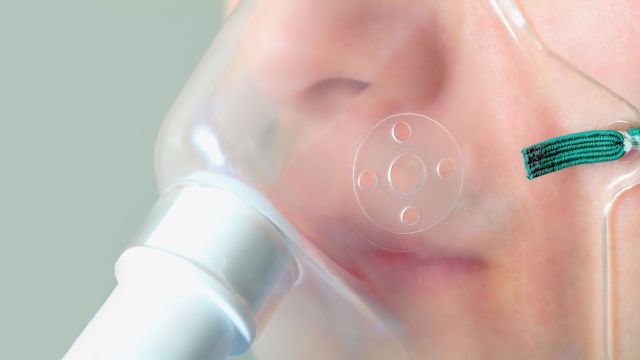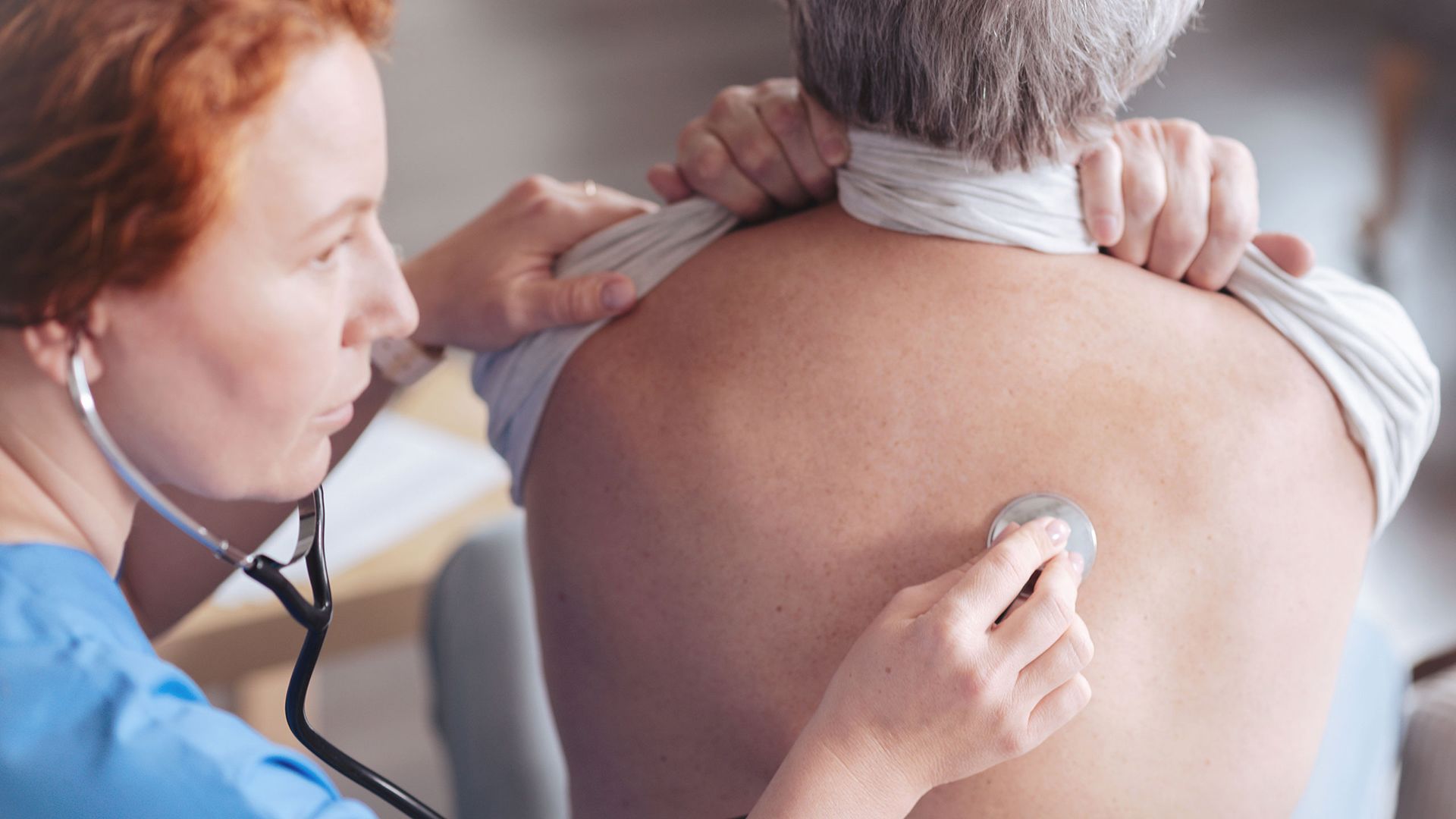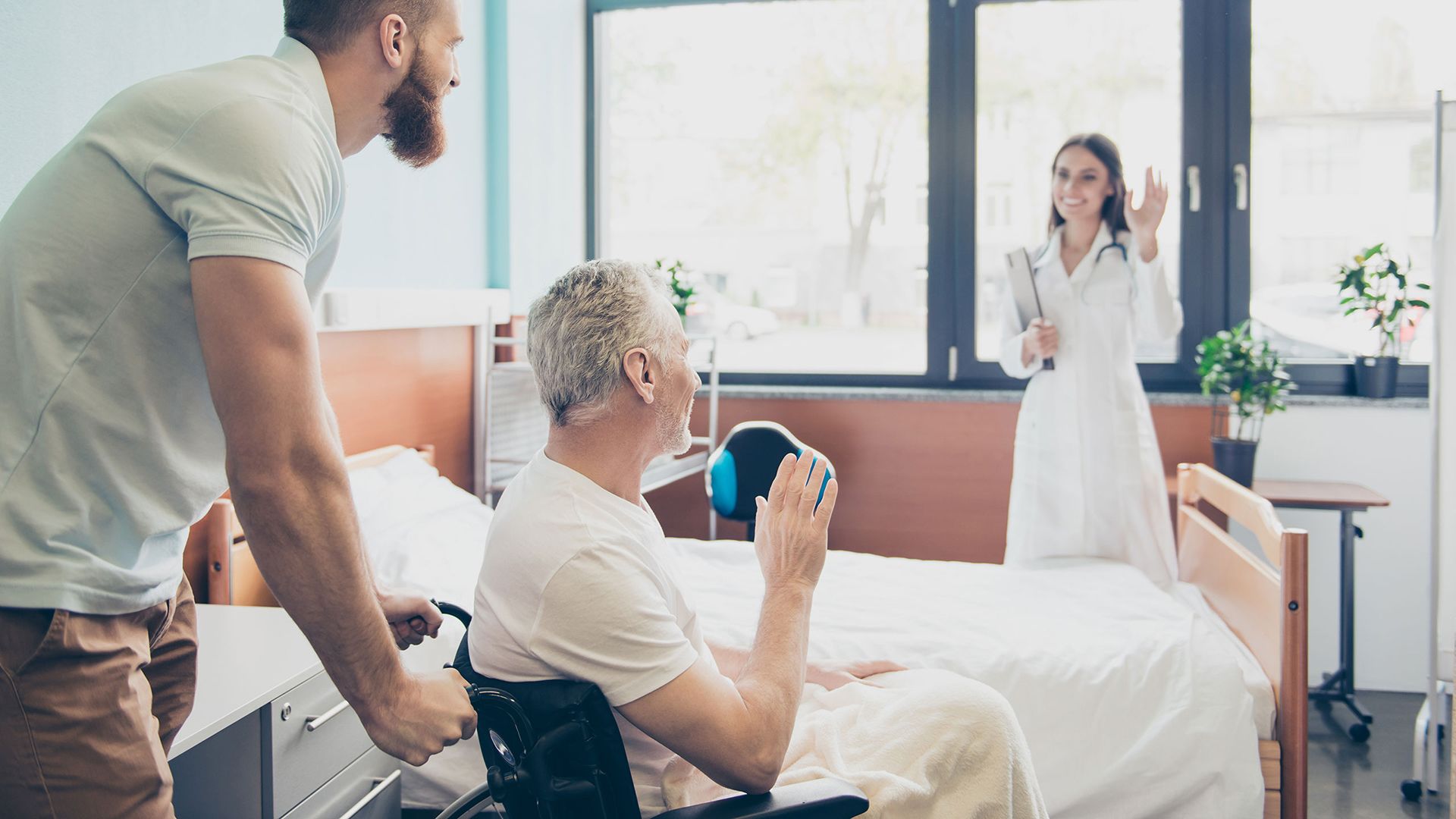Updated on October 14, 2025
If you or a loved one is living with chronic obstructive pulmonary disease (COPD), it is important to recognize the signs of a COPD exacerbation. Sometimes called a flare-up, an exacerbation is an episode where symptoms become more severe—sometimes much more severe. Each year, COPD exacerbations result in hundreds of thousands of hospitalizations and emergency room visits in the United States.
COPD exacerbation symptoms
When a person experiences a COPD exacerbation, their usual COPD symptoms become worse. These worsening symptoms can include increased shortness of breath, wheezing more than usual, and producing more mucus, or producing mucus that is different in color—from clear to yellow, green, red, or brown.
People experiencing an exacerbation may also feel fatigued, have trouble sleeping, and in some cases, they may also have a fever. If a person checks their oxygen level, they may see it starting to fall. More trouble sleeping, morning headaches, confusion, and difficulty waking up are important symptoms to watch for. These are signs of high carbon dioxide levels, a situation that requires immediate medical treatment.
If you or someone you care for is experiencing the signs of a COPD exacerbation, it is important to take note of all the symptoms and provide this information to your healthcare providers.
Treatment for COPD exacerbations
COPD exacerbations vary in severity, and treatment will depend on how severe symptoms are and the cause of the exacerbation. In the majority of cases, COPD exacerbations are caused by infections in the lungs. But in some cases, no specific cause can be identified. Treatments for COPD exacerbations may include:
- Inhaled bronchodilators to relieve the constriction in the airways
- Corticosteroids to reduce swelling
- Antibiotics, if the exacerbation is caused by a bacterial infection
- An antiviral medication, if the exacerbation is being caused by a viral infection like the flu
- Oxygen therapy
If the lungs are not able to take in enough oxygen, a patient may need to be placed on a ventilator.
Severe exacerbations often require hospitalization, but some patients are treated on an outpatient basis.
Prevention of COPD exacerbations
There are a few things you can do to prevent COPD exacerbations and quitting smoking—if you or your loved one hasn’t already—should be at the top of the list. Quitting smoking can slow the progression of COPD and prevent exacerbations. It is also important to eliminate secondhand smoke from the home.
Also at the top of the list is using all medications and treatments as directed by your healthcare provider. Don’t skip doses, treatment sessions or appointments. Your healthcare provider plays an important role in keeping you well, and it is important to keep up with your appointments and treatment, even during those times when symptoms feel under control.
You should discuss vaccinations with your healthcare provider, to make sure you are up to date on your flu shot, as well as shots for pneumonia, whooping cough, COVID, and respiratory syncytial virus (RSV). These illnesses are extremely dangerous to someone with COPD. Your healthcare provider may recommend additional vaccinations.
Take precautions to avoid infection, including keeping your hands clean. Wash them often and carry hand sanitizer with you. If you haven't washed your hands recently, keep them away from your mouth, nose, and eyes. Avoid crowds and be conscious about touching anything that is shared by multiple people (such as doorknobs and pens), especially during cold and flu season.
You should also take steps to reduce potential COPD triggers in the home. Triggers include smoke from cooking and fireplaces, dust, pollen, pet dander, mildew, mold, and household products that contain irritating chemicals. It’s important to change filters on heating units and air conditioners regularly. Using a dehumidifier can also reduce allergens around the home.
Outside the home, you can prevent COPD exacerbations by avoiding places where people smoke, checking air quality and humidity levels, before you go out and wearing a mask or scarf over your mouth.






